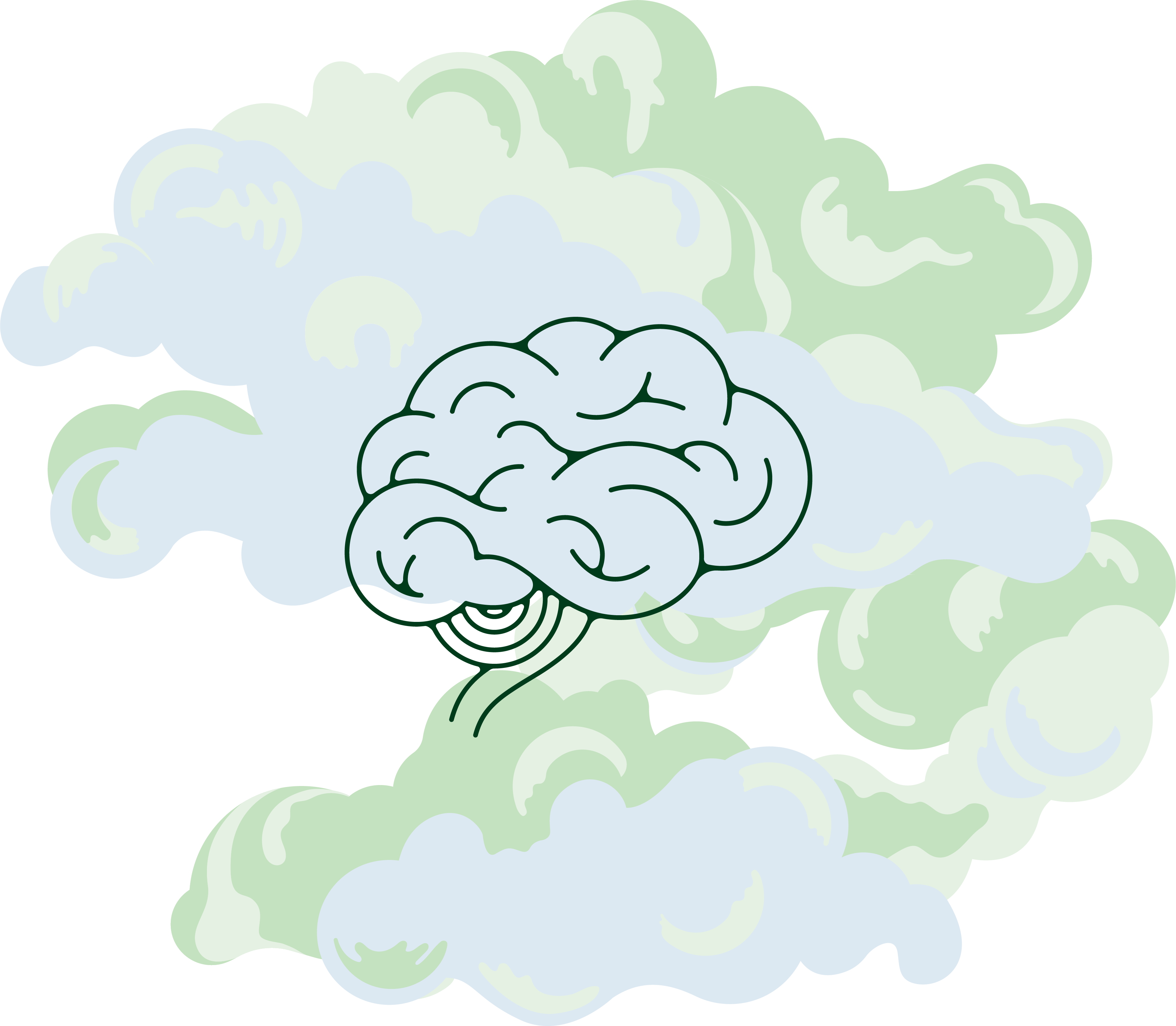Table of contents
1. Before 27-year-old Emily went on antidepressants, she described her sex life as “active” and her libido as “healthy”. But after she started to take Fluoxotine, a selective serotonin reuptake inhibitor (SSRI) used mainly to treat depression, she found that her sex drive “rapidly declined”.
2. “Initially, I didn't understand what the cause was, which was frustrating and confusing,” she tells me. “I felt disappointed by these changes as they do have an impact on your sex life and your relationships. It felt like a part of [me] was taken away.”
3. Antidepressants affecting your sex drive? You are not alone
4. What do the experts say?
5. Antidepressants and sex drive: how to manage?
Illustrated by Erin Rommel
Before 27-year-old Emily went on antidepressants, she described her sex life as “active” and her libido as “healthy”. But after she started to take Fluoxotine, a selective serotonin reuptake inhibitor (SSRI) used mainly to treat depression, she found that her sex drive “rapidly declined”.
“Initially, I didn't understand what the cause was, which was frustrating and confusing,” she tells me. “I felt disappointed by these changes as they do have an impact on your sex life and your relationships. It felt like a part of [me] was taken away.”
Antidepressants affecting your sex drive? You are not alone
Emily, who runs a mental health clinic in Essex, isn’t alone in feeling this way. Many others who take SSRIs report similar experiences due to the medication. The drugs are widely prescribed in the UK as an antidepressant to treat various mental health conditions, including depression, anxiety, and OCD. As of 2020, about 7.3 million people in the UK are on some sort of antidepressant. This is 17 percent of the adult population.
When I was first prescribed Sertraline, another SSRI, three years ago, reduced sexual drive was amongst the side-effects my doctor warned me about. After this conversation, I did my research. Much evidence suggests that SSRIs can affect your libido. Antidepressants can make it difficult to become aroused, sustain arousal or even orgasm. Approximately 40 percent of sexual dysfunction cases for people on antidepressants can be attributed to the drugs themselves. Women, in particular, are at an increased risk of reporting changes in their libido.

On top of mental health issues, consequences like this can add an immense additional challenge that can be frustrating, painful or even embarrassing. Twenty-eight year-old Kate is on Lexapro, a medication used to treat depression and anxiety. She has also experienced a negative impact on her sex drive.
“
At the beginning, I didn’t really notice any change because I had been so anxious and depressed beforehand that my sex life had obviously been affected anyway. But when my desire for sex vanished completely I felt broken hearted. Not for the sex per se, but because I felt I would never feel normal again.
What do the experts say?
Dr Alexander Lapa, a psychiatrist at Asana Lodge, explains that reduction in sexual drive is amongst the most common side-effects for patients who are taking SSRIs. The reason behind this is because antidepressants attempt to balance the neurotransmitters in the brain by boosting levels of serotonin. At the same time, they decrease dopamine – the neurotransmitter that plays a role in how humans view and feel pleasure.
He corroborates the idea that lowered sexual drive is even more prevalent in women who are taking antidepressants. “I have found that this symptom is more common in women, and it normally presents itself in either late lubrication or the inability to orgasm. Research has suggested that serotonergic drugs impede the required balance necessary to allow for vaginal arousal, so if you are experiencing this as a woman then that is quite normal.”
Antidepressants and sex drive: how to manage?
Luckily, this particular side-effect isn’t without solutions. Dr Lapa suggests looking at other external factors that can influence sex drive, including diet, routine, stress and exercise. Finally, he says working on timing can be “a great thing”, ensuring that sex takes place when both people feel equally aroused. Planning to have sex before taking your medication each day, for instance, can be a game-changer, he says. At this time, the levels of the drug in the body are at its lowest, which means the sexual side effects in your body are lessened. The same goes for having sex during the ovulation phase of the menstrual cycle. This will boost the luteinising hormone in the body, so “you should feel a greater sexual desire”.
He also recommends taking SSRIs in tandem with attending therapy. “These issues very often are rooted in something else such as a past trauma, and in actuality this is the cause – and has probably always been – of your sexual dysfunction.” In fact, according to Harvard Health Publishing, 30 to 50 percent of people experience some sort of underlying sexual dysfunction prior to going on medication.
“
If you’ve only just started taking an antidepressant, I would recommend waiting a while before you jump to any conclusions. Sometimes your body is just adjusting to a new drug. A lot of the time these symptoms are dose-dependent, so you should consult with your doctor, in which case they may suggest a lower dose that will hopefully reduce the problem.
Similarly, others have suggested that changing medications altogether can help. There are some which are simply “better” for the individual, are not known to lead to negative outcomes in your sex life. Kate recommends speaking to your doctor. “There are so many different kinds of medication out there that you will most definitely find the one for you.”
Both Emily and Kate also spoke to their partners when they first started taking antidepressants. Emily says it's natural for your romantic partner to feel just as confused and perhaps even shunned. “A partner can feel rejected or jump to the conclusion that it has something to do with feelings and emotions, rather than side-effects from medication,” she says. “I worked to address both of our sexual needs and to ensure neither of us felt isolated.”
Women who are experiencing any change in their sex lives shouldn’t need to feel any shame – and that process begins with an open channel of communication. “This happens to so many people,” says Kate. “So talk to people about it. I didn’t think doing so was worth it, but it was”.






